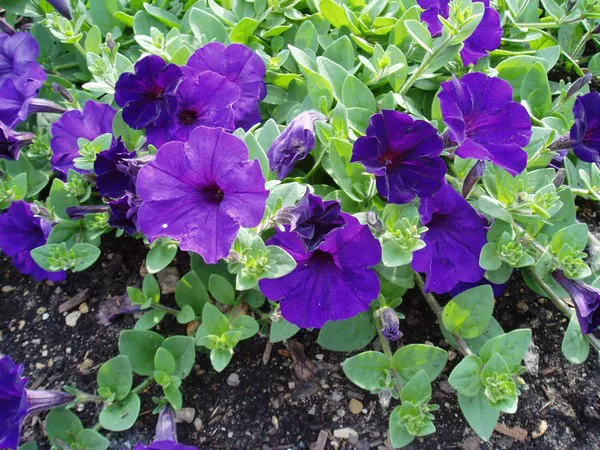Petunias are beloved for their vibrant colors, delicate blooms, and ability to thrive in various climates. However, these beautiful flowers can fall victim to a variety of bugs and insects that see them as a tasty snack. As a petunia enthusiast, it’s essential to be aware of these pests and take proactive measures to protect your garden. In this article, we will explore six common bugs and insects that love eating petunias and discuss effective methods to repel them.
1. Aphids
Aphids are tiny insects that can wreak havoc on petunias by sucking the sap from their leaves and stems. These pests reproduce rapidly, making them particularly troublesome for gardeners. Signs of aphid infestation include curled or distorted leaves, sticky honeydew residue, and the presence of ants, which often “farm” aphids for their honeydew.
To repel aphids from your petunias, try the following methods:
- Introduce natural predators such as ladybugs, lacewings, or parasitic wasps.
- Spray affected plants with a solution of water and dish soap to suffocate aphids.
- Apply neem oil or insecticidal soap to deter aphids without harming beneficial insects.
2. Slugs and Snails
Slugs and snails are notorious garden pests that enjoy feasting on the tender foliage of petunias, leaving behind unsightly holes and slime trails. These nocturnal creatures thrive in moist environments and are often found hiding under mulch or debris during the day.
To protect your petunias from slugs and snails, consider the following tactics:
- Place barriers such as copper tape or diatomaceous earth around petunia beds to deter these pests.
- Set up beer traps by burying shallow containers filled with beer near affected plants to attract and drown slugs and snails.
- Handpick slugs and snails from your garden in the evening and dispose of them away from your petunias.
3. Whiteflies
Whiteflies are small, flying insects that can cause significant damage to petunias by feeding on their sap and transmitting plant viruses. These pests are often found congregating on the undersides of leaves, where they lay their eggs and produce sticky honeydew.
To control whiteflies in your garden, try the following methods:
- Use yellow sticky traps to capture adult whiteflies and reduce their numbers.
- Encourage natural predators such as parasitic wasps, ladybugs, and lacewings.
- Apply insecticidal soap or neem oil to affected plants to deter whiteflies and their nymphs.
4. Thrips
Thrips are slender, winged insects that feed on petunia flowers and foliage, causing them to become distorted and discolored. These pests are often difficult to detect due to their small size and rapid movement.
To manage thrips infestations in your garden, consider the following strategies:
- Introduce predatory insects such as minute pirate bugs or predatory mites to control thrips populations.
- Remove and destroy infested plant material to prevent the spread of thrips to healthy petunias.
- Apply insecticidal soap or neem oil to affected plants to deter thrips and their larvae.
5. Caterpillars
Caterpillars are the larval stage of butterflies and moths and can be voracious feeders on petunia leaves and flowers. While some caterpillars may eventually transform into beautiful butterflies, their feeding habits can cause significant damage to petunia plants in the meantime.
To protect your petunias from caterpillars, try the following methods:
- Inspect petunia plants regularly for signs of caterpillar damage, such as chewed leaves or holes.
- Handpick caterpillars from your garden and relocate them to nearby wild areas where they can feed without causing harm.
- Apply Bacillus thuringiensis (Bt) insecticide to affected plants to target caterpillars specifically while minimizing harm to beneficial insects.
6. Earwigs
Earwigs are nocturnal insects with pincer-like appendages at the end of their abdomens, which they use to feed on plant material such as petunia flowers and buds. While earwigs are generally considered beneficial predators of other garden pests, they can become problematic when their populations grow too large.
To deter earwigs from munching on your petunias, consider the following strategies:
- Place rolled-up newspaper or cardboard traps near affected plants to attract and capture earwigs.
- Apply diatomaceous earth around petunia beds to create a barrier that earwigs are reluctant to cross.
- Reduce excess moisture in your garden by watering plants in the morning and providing good drainage to discourage earwig activity.
Conclusion
In conclusion, protecting your petunias from bugs and insects requires vigilance, proactive management, and a combination of cultural, mechanical, and biological control methods. By identifying and addressing pest issues early, you can ensure that your petunias remain healthy and vibrant throughout the growing season. With the strategies outlined in this article, you can enjoy a beautiful petunia garden free from the damage caused by common pests.


